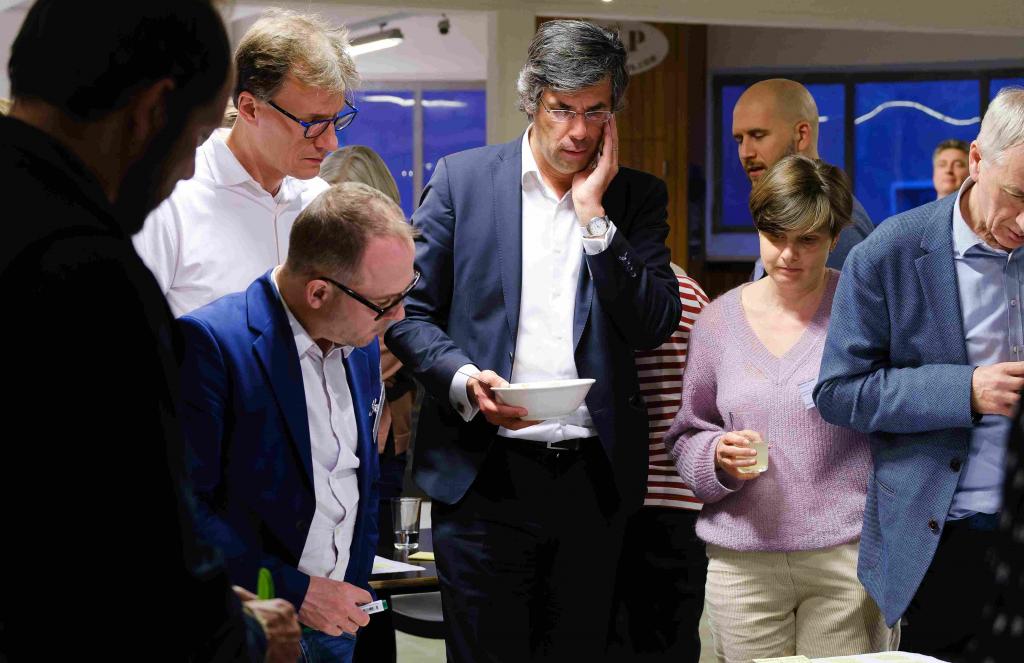Thessaloniki gets ready for its metro launch in November
The underground rapid transit lines have been under construction for almost two decades due to various project delays
 TheMayor.EU logo
TheMayor.EU logo 
The participants, including Alderman David Dessers, kicked off the Urban Lab by dividing into workgroups , Source: City of Leuven
The initiative will foster a tight-knit community between academia, government and private actors to pool the city’s resources
Yesterday, authorities in Leuven, Belgium, launched their first Urban Lab – a joint initiative aiming to pool all resources, public, private, academic and non-governmental to strengthen the city’s push towards sustainability in the next eight years.
The Leuven 2030 Urban Lab will facilitate a continuous exchange of knowledge between the involved parties. In fact, more than 100 experts from the fields of energy, mobility and entrepreneurship took part in the launch event, laying the foundations of this community.
One of the big collaborators to the Urban lab is the local academic community, with its most notable representative - the KU Leuven (the Catholic University of Leuven).
The Vice-Rector for Sustainability, Gerard Govers, explained that the Urban Lab will offer an answer to a very urgent question: How can academia interact with professionals better?
According to him, the structural collaboration with the city and all involved parties on the matter would streamline the dissemination of expertise on urban sustainability and positively impact the research and development process.
Last night the participants formed the first working groups that will aim at tackling specific issues, like how to optimally implement a fossil-fuel-free transit system or ensure the sustainable production of food as the city continues to grow.
Some of the other big topics the working groups will try to tackle are climate adaptation to hotter summers and cooler winters and reducing the energy consumption of the housing stock. According to a statement by the city, concentrating local efforts would accelerate the climate transition for Leuven.
David Dessers, Alderman for Climate and Sustainability, heading the Leuven 2030 Urban Lab was quoted in a press release explaining: “The Urban Lab will detect Leuven’s research needs regarding sustainability and incorporate them into the research and education agenda of the educational institutions. It will also become a meeting place for scientific knowledge about urban sustainability, a place where policymakers, civil society organisations, citizens, companies, teachers and students can exchange intensively to formulate answers to the climate crisis.”

The underground rapid transit lines have been under construction for almost two decades due to various project delays

Now you can get your wine in Talence by paying directly in Bitcoin

That’s because the state has to spend money on updating the railway infrastructure rather than subsidizing the cost of the popular pass

Rethinking renewable energy sources for the urban landscape

The examples, compiled by Beyond Fossil Fuels, can inform and inspire communities and entrepreneurs that still feel trepidation at the prospect of energy transition

Now you can get your wine in Talence by paying directly in Bitcoin

The 10th European Conference on Sustainable Cities and Towns (ESCT) sets the stage for stronger cooperation between the EU, national and local level to fast track Europe's transition to climate neutrality.

At least, that’s the promise made by the mayor of Paris, Anne Hidalgo

The underground rapid transit lines have been under construction for almost two decades due to various project delays

At least, that’s the promise made by the mayor of Paris, Anne Hidalgo

Hostal de Pinós is located in the geographical centre of the autonomous region

Despite its church-y name, the district has long been known as the hangout spot for the artsy crowds

Urban dwellers across the EU are having a say in making their surroundings friendlier to people and the environment.

Forests in the EU can help green the European construction industry and bolster a continent-wide push for architectural improvements.

Apply by 10 November and do your part for the transformation of European public spaces

An interview with the Mayor of a Polish city that seeks to reinvent itself

An interview with the newly elected ICLEI President and Mayor of Malmö

A conversation with the Mayor of Lisbon about the spirit and dimensions of innovation present in the Portuguese capital














